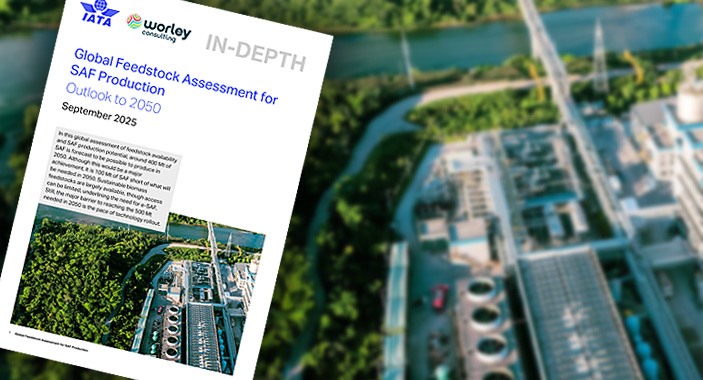
News
Feedstock available to meet Sustainable Aviation Fuel airline demand global study reports
September 25th 2025
The International Air Transport Association (IATA), in partnership with Worley Consulting, has published a study demonstrating enough Sustainable Aviation Fuel (SAF) feedstock exists to enable the airline industry to achieve net zero CO₂ emissions by 2050. Read More » All the feedstocks considered meet stringent sustainability criteria and will not lead to changes in land use, the study said. "We now have unequivocal evidence that if SAF production is prioritized then feedstock availability is not a barrier to the industry’s path to de-carbonization. There is enough potential feedstock from sustainable sources to reach net zero carbon emissions in 2050. However, this will only be accomplished with a major acceleration of the SAF industry’s growth. We need shovels in the ground now," IATA director general, Willie Walsh, said. The study’s results answer critics who claim the industry’s plans to de-carbonize with SAF might hit a roadblock of not enough resources or affect land use around the world. The airline association responded that with the right policies and investments, more than 300 million tonnes (Mt) of SAF from biomass feedstocks could be produced annually by mid-century and around 200 Mt from e-SAFm, allowing it to reach the target of 500Mt of SAF to achieve net zero carbon emissions by 2050. "With this study it becomes clear we can make SAF the solution it needs to be for aviation’s de-carbonization. The potential to turn SAF feedstock into real SAF production is in the hands of policymakers and business leaders, particularly in the energy sector. The conclusion of this study is an urgent call to action. We have just 25 years to turn this proven potential into reality," Walsh said.